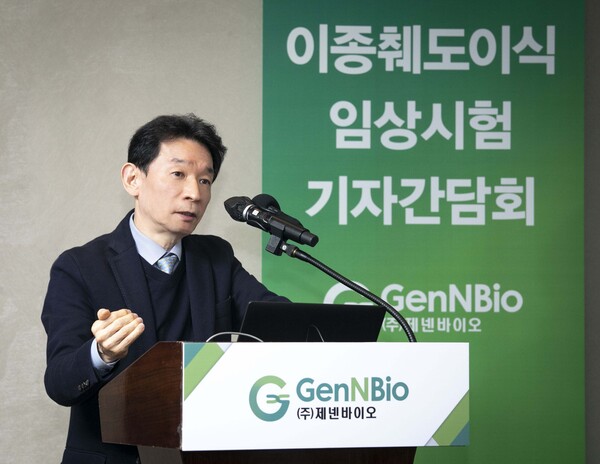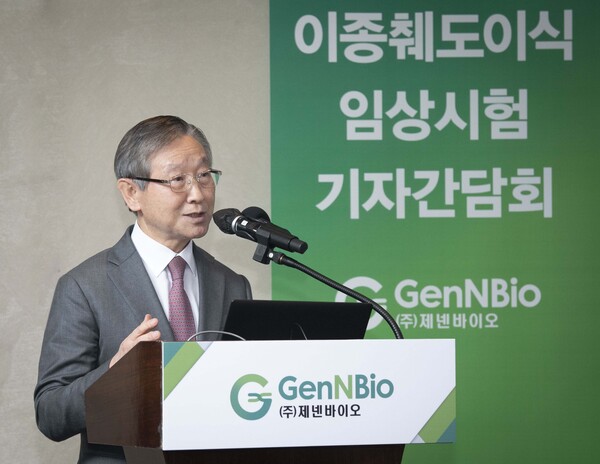GenNBio expressed its goal to lead clinical trials of xenotransplantation of pancreatic islets globally and develop new treatment options for incurable diseases.
The company held a press conference on Wednesday to update its development of pig pancreatic islet transplantation. The company hopes that it could be a complete cure option for type 1 diabetes patients who have difficulty controlling blood sugar due to impaired pancreatic function.
The company received the regulatory nod in December last year to go ahead with the phase 1 clinical trial with two patients enrolled so far.

According to the company, there is almost no clinical trial approved for xenotransplantation worldwide.
"While pancreatic islet transplantation has been conducted in four places, including Mexico, China, Argentina, and New Zealand, the company's trial is the only study that complied with international standards such as receiving a review by the International Xenotransplantation Association and the Transplantation Society's ethics committee," GenNBio CEO Kim Sung-joo said.
As the company has prepared thoroughly for the trial, it is looking forward to positive results, Kim added.
In the clinical trial, the Seoul National University Organ Transplant Research Center will produce aseptic pigs without infectious bacteria and extract the pancreas.
Afterward, GenNBio will separate and purify the pure islet from the pancreas at its xenotransplantation product manufacturing facility in Gachon University Gil Medical Center and work on it as a cell therapy.
After transplanting the purified pancreatic islet to the patient, the Gil Medical Center will perform immunosuppressive treatment, check the safety of the pancreatic islet, and conduct long-term follow-up by confirming the effect of the xenotransplantation.
“Despite the necessity of pancreatic islet transplantation, xenotransplantation is proposed as the only alternative because of the clear limitations of allotransplantation,” said Professor Kim Kwang-won at the Endocrinology Department of Gachon University Gil Medical Center who is leading the study. “We will cooperate organically so that xenotransplantation can become a new treatment option for type 1 diabetic patients.”

Professor Kim emphasized that GenNBio's clinical trial is focused on diabetes patients who have not responded well to existing treatments.
Such patients include those diagnosed with type 1 diabetes for more than five years, patients with a maximal insulin insufficiency of 0.3 ng/mL or less in an oral glucose tolerance test or glucagon stimulation test, and patients who were hospitalized or visited an emergency room more than twice a year due to hypoglycemia insensitivity.
“While fundamental improvement through pancreatic islet transplantation is required for such patients, in the case of allogeneic islet transplantation in Korea, the transplant rate is very low compared to other kidney and liver transplants,” Professor Kim said. “The transplant rate averages about a single case per year.”
Under these circumstances, Professor Kim stressed that if xenotransplantation demonstrates good results, it will leave a paradigm-shifting milestone in the field of transplantation.
GenNBio also expects that if the study is successful, at least 6,000 type 1 diabetes patients in Korea will benefit from its treatment.
CEO Kim stressed that the company is discussing with the Ministry of Food and Drug Safety to increase the number of enrolled patients for the trial.
As a pioneer in xenotransplantation clinical trials in Korea, GenNBio will be able to help set guidelines and regulations, he added.

